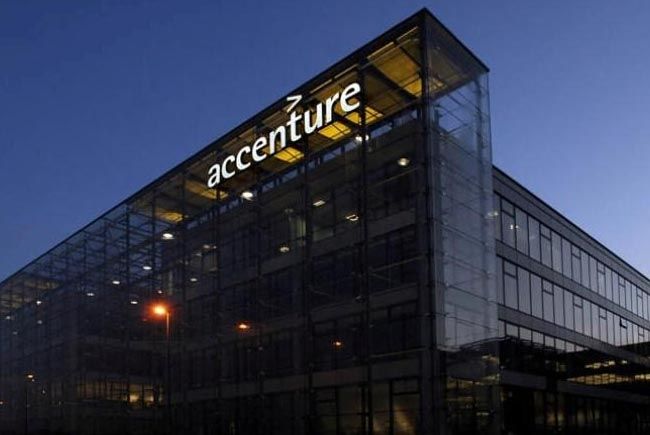
Starting September 1, Accenture will integrate all its core services, including strategy, consulting, marketing (known as Song), technology, and operations, into a unified business unit called Reinvention Services.
This move is designed to help clients transform more quickly by embedding AI and data at the very start of their journeys, rather than treating them as afterthoughts. Manish Sharma, CEO of The Americas at Accenture, will lead this new unit as the firm’s first chief services officer. All the heads of the existing service lines will report directly to him.
The goal is clear: to provide a single, cohesive service offering that reinforces Accenture’s position as a generative AI leader, enabling clients to adapt swiftly and effectively to technological and business changes. With this move, Accenture aims to become the partner of choice for enterprises worldwide in their reinvention efforts.
But what does this transformation really mean for Accenture, and the broader IT services landscape? Can the company truly meet the ambitious expectations it has set for itself?
Saurabh Gupta, president of research and advisory services at HFS Research, described the decision as a “bold” move. According to him, it reflects a significant shift in how the firm engages with clients, moving from marketing individual services to delivering integrated, outcome-based solutions that solve real business challenges.
According to Gupta, by combining Strategy, Consulting, Song, Technology, and Operations under one umbrella, Accenture simplifies its own structure while aligning more closely with market demand for large-scale, cross-functional transformations. He noted that this consolidated approach mirrors OneOffice’s vision of seamless client experiences, which many industry analysts have advocated for years.
However, Gupta was also quick to point out the risks. “Accenture’s bold reinvention faces serious challenges that could derail momentum,” he said, emphasising that leadership volatility, marked by four CEO-level changes across major divisions within a year, could erode client trust during this critical period of change.
Highlighting the sheer size and complexity of the organisation, he added, “We’ve often likened Accenture to a country; not a company. That kind of scale is impressive but comes with a heavy price: slower decision-making, complex policy rollouts, and a workforce that can easily lose sight of the bigger picture.”
According to Gupta, real integration will require more than a new organisational structure. It will require a deep cultural change and incentive redesign. “True collaboration across service lines will only work if it’s embedded in day-to-day behaviours and reinforced through aligned employee incentives,” he said.
He also pointed to Accenture’s aggressive acquisition strategy—39 deals in 2024 alone—as a complicating factor. “While many of these acquisitions make strategic sense on paper, both clients and acquired teams are still figuring out how to navigate the ‘Accenture way’. Now, layering on a completely new One Accenture model makes integration even more complex—and potentially messy.”
Gupta concluded that while Reinvention Services is a smart and timely response to the AI era, success will depend on deep, internal transformation. “To truly deliver on the promise of One Accenture, the company must fix its culture, align employee incentives, ensure leadership stability, and remain agile despite its scale,” he said. He advised clients to hold Accenture accountable by demanding measurable outcomes, integrated delivery, leadership continuity, and greater speed and flexibility.
Saday Sinha, founder and CEO of DreamLadder Capital, echoed a similar sentiment in a post on X. Reflecting on Accenture’s financial performance and the shift to Reinvention Services, he noted that it signals stable but selective demand in the market. He emphasised that Indian IT companies must now double down on AI-led, value-driven, end-to-end offerings if they hope to stay competitive in this evolving landscape.
Frank Wander, founder and board member at PeopleProductive, commented on LinkedIn that the economics of knowledge work are being redefined by AI. “I’ve been waiting to see how professional services firms reinvent themselves. They have to create a lot more value for clients by bringing real solutions, not just advisory work,” he said.
Wander emphasised that true reinvention calls for deep innovation, involving tools, platforms, software subscriptions, instead of just internal reshuffling. “Are these large advisory firms capable of creating an innovative culture? We’ll see. Reinvention is easy to say, but difficult to do. How they move forward will determine how they create value for many years to come,” he remarked.
Bill Bentaieb, a former employee at Accenture, added a dose of scepticism. “Most very large consulting firms still believe that internal reorganisations will positively impact value. I am not entirely convinced.”
He pointed out that the integrated approach Accenture is now promoting has long been an expectation from clients. “After all, this ‘new’ integrated approach is what clients have been expecting and what consulting firms have been promising for decades. Clients, I believe, are looking for consultants with a new set of skills. Today, the challenge for consulting firms is to upskill their workforce instead of focusing on reorganisations and rebranding,” Bentaieb said.
The post Accenture Dares to Reinvent, But Will the Gamble Pay Off? appeared first on Analytics India Magazine.


